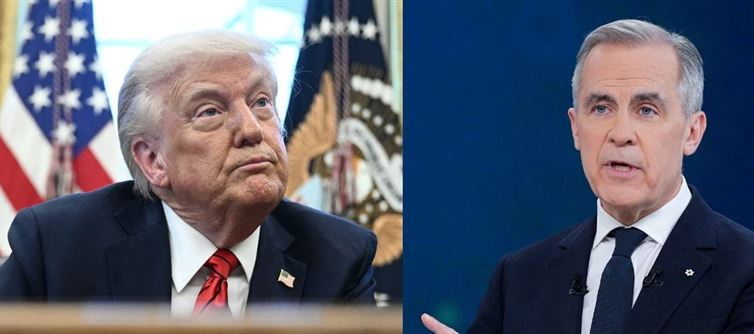
Building Canada's economy in the midst of the prolonged trade war, he added, requires collaboration between the provinces and territories. Blanchet inquired about the steps being taken to assist Canadians throughout this period, and Singh acknowledged the necessity of a calculated reaction to US tariffs.
Carney, who succeeded Justin Trudeau as prime minister on march 14, hopes to continue his tenure. The seasoned banker, however, has other grievances with the US, including the tariff battle and Trump's incessant remarks about canada being the 51st state.
Although Poilievre has pledged to oppose trump, he has maintained that canada was exposed to unfriendly US trade practices due to ten years of poor economic performance under the Trudeau-led Liberals.
While Poilievre speaks effectively at political gatherings, Carney has frequently come under fire in French-speaking Quebec, where the debate was held, for his limited command of the language.
However, since the last three Liberal prime ministers—Paul Martin, Jean Chretien, and Trudeau—all served as the district's parliamentary representative, Quebec continues to be important. Of the 343 seats in the house of Commons, 78 are held by the province.
Regarding the trade battle, Carney has insisted that until Washington lifts its import taxes, canada will continue to impose retaliatory tariffs on over C$60 billion worth of US products. Carney, who claims that dollar-for-dollar tariffs can only be applied so far, has pledged that following the election, canada will work out a new economic and security partnership with the US.
The Conservatives lead by Poilievre are putting out a compromise whereby the US and canada simultaneously remove their tariffs and counter-tariffs.




 click and follow Indiaherald WhatsApp channel
click and follow Indiaherald WhatsApp channel